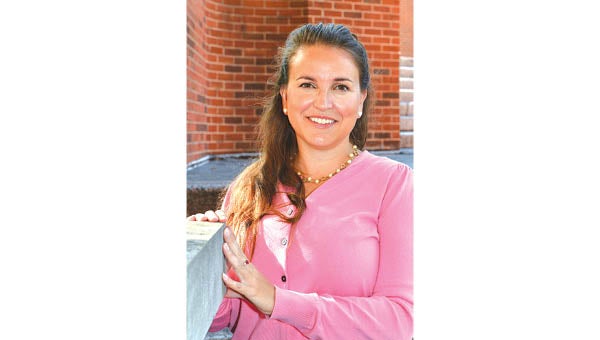State funding allows expansion of gambling clinic services to East Tennessee
Published 2:43 pm Tuesday, August 30, 2022

- Meredith Ginley
|
Getting your Trinity Audio player ready...
|
ETSU will host second site of The Institute for Gambling and Education Research
JOHNSON CITY — East Tennessee State University is home to the second clinic in the state to treat individuals whose lives have been significantly harmed by gambling, thanks to a $1.2 million grant by the Tennessee Department of Mental Health and Substance Abuse Services (MHSAS).
This grant was recently awarded to The Institute for Gambling Education and Research (TIGER) at the University of Memphis (UM) to expand gambling research and treatment services for all Tennesseans.
Gambling for most people does not cause harm to themselves or others. However, according to TIGER, more than 200,000 Tennesseans will experience some level of harm due to their gambling, and for another 100,000, that level of harm can be diagnosed as a gambling disorder. Each person with a gambling disorder will adversely impact six other people. Gambling-related harms include mental health problems, failed businesses, criminal activity, broken families, bankruptcy and suicide.
Gambling continues to grow, and nine out of 10 people with a gambling problem never seek treatment. The Tennessee Education Lottery has verified a record $2 billion in revenues in fiscal year 2021-22, while an additional $2 billion was wagered in Tennessee on sports events in a single year.
Under the leadership of Dr. James Whelan, UM psychology professor and Institute director, TIGER has earned an international reputation for research on prevention and treatment for gambling disorders since its establishment in 1999. Partnership with MHSAS has afforded TIGER the opportunity to maintain a clinic on the UM campus to treat more than 1,000 people whose lives have been significantly harmed by gambling.
Whelan calls this latest MHSAS grant a “game changer,” as it provides for the opening of the Institute’s second clinic at ETSU.
“A good defense is our best offense at this point, as gambling disorder symptoms are only increasing with the ubiquity of sports gambling,” he said.
The ETSU clinic is led by Dr. Meredith Ginley, an assistant professor of psychology who earned her Ph.D. at UM and studied under Whelan. The new clinic will focus its efforts on providing services to those in rural and urban communities in Appalachia, while the UM clinic focuses on ethnic minority and urban communities in West Tennessee. Both clinics welcome telehealth clients living anywhere in the state who may not find it convenient to drive to one of the clinics.
Together, these clinics will evaluate the efficacy and effectiveness of gambling disorder treatment among historically underserved communities. They will also cross-train clinical psychology graduate student therapists in telehealth and in-person services.
“In the next five years, our partnership with the Department of Mental Health and Substance Abuse Services will make Tennessee a leader in managing gambling harms experienced by the people living in our communities,” Ginley said.
The grant funding will also reinforce treatment through the creation and evaluation of an online portal for gambling assessment and treatment. Research on the online portal will be led by Dr. Rory Pfund, research assistant professor and UM graduate.
“Our legislators’ decision to set aside funds for gambling treatment has provided Tennessee with an opportunity to care for those harmed by gambling,” Whelan said. “The Institute for Gambling Education and Research is prepared to take on the responsibility to help. For decades, we have partnered with clients to learn about the uniqueness of gambling as an addiction. In turn, the challenges in the clinic have been the focus in the lab.”
Ginley said the Institute’s research will lead to a better understanding of how best to help individuals with gambling disorders, which are different from substance use disorders.
“No one says, ‘If I just have one more six-pack, it’s going to solve all my problems,’” Ginley said. “But anytime you gamble, there’s an actual chance that you could win all this money that would solve all your problems. So the cognitive processes and intervention methods are a bit different, and that’s something TIGER has learned a lot about that will allow us to provide specialized care for this population.”
For more information, visit the Gambling Clinic website at memphis.edu/gamblingclinic/. To make a telehealth or in-person appointment with The Institute for Gambling Education and Research clinic at ETSU, contact gamblingcliniceast@etsu.edu or Ginley directly at ginleym@etsu.edu or (423) 439-4113.




